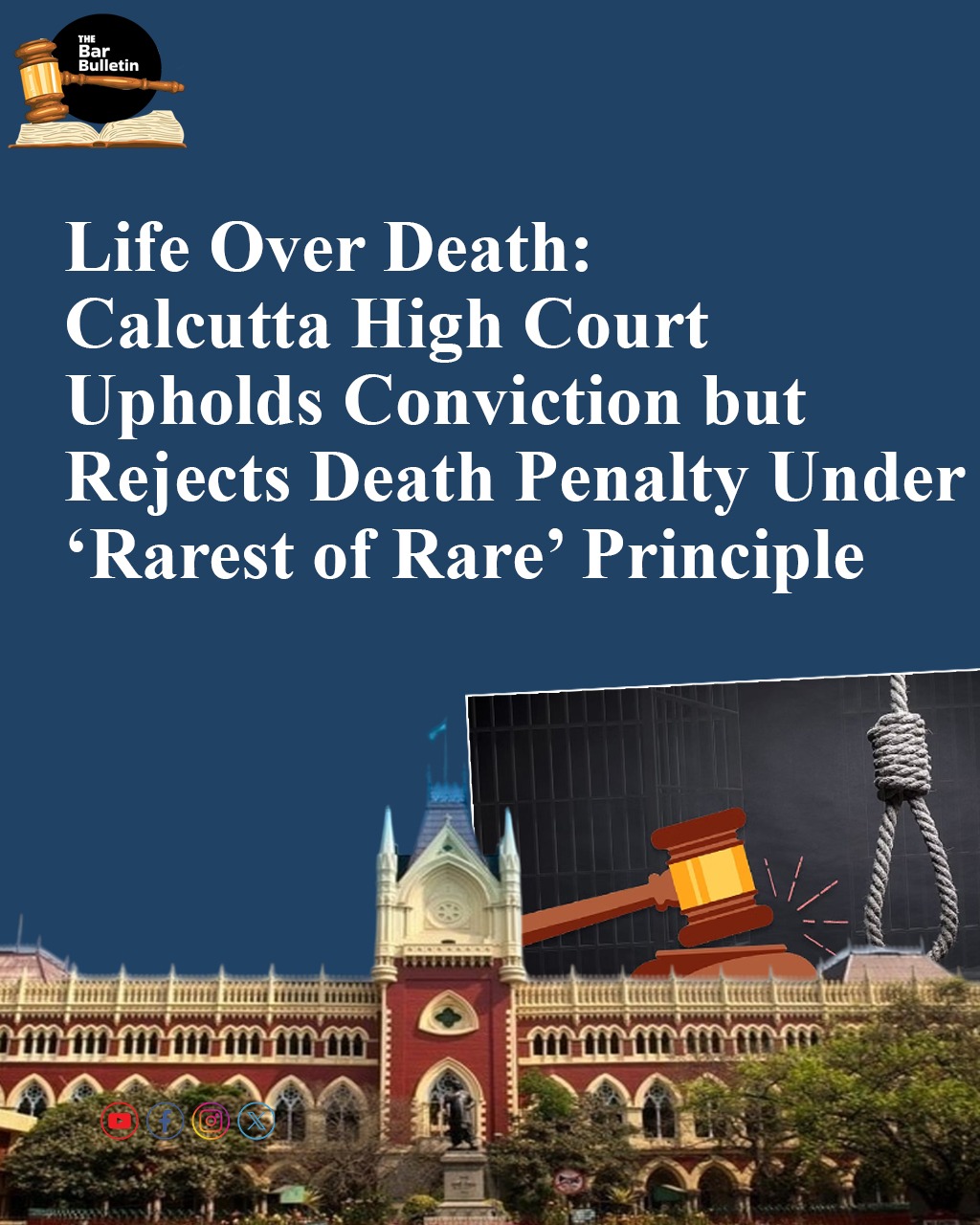The Calcutta High Court (Circuit Bench at Jalpaiguri), deciding a death sentence reference along with connected criminal appeals, confirmed the conviction of the appellant but commuted the death sentence awarded by the trial court to imprisonment for the remainder of the convict’s life, stipulating that he shall not be released for twenty years except in exceptional circumstances.
The prosecution case established that in the early hours of 28 July 2023, Aftab Alam, the only adult accused among six perpetrators, entered the victims’ home with co-accused juveniles, stabbed the victim to death in the presence of his two young sons, and seriously injured his wife, during a dacoity. Eyewitness accounts from the wife and sons, corroborated by neighbours and recovery of weapons from a nearby forest on the appellant’s disclosure, formed the core of the prosecution’s evidence.
The defence challenged the reliability of witnesses, pointed to inconsistencies, alleged flaws in the recovery process under Section 27 of the Evidence Act, and argued that the offence did not meet the “rarest of rare” standard for capital punishment.
The Bench comprising Justice Sabyasachi Bhattacharyya and Justice Uday Kumar examined the alleged contradictions in witness testimony, finding them minor or explainable, and confirmed that the chain of events was consistently supported by multiple witnesses. It upheld the admissibility of the recovery of the murder weapon, noting substantial compliance with Section 27 requirements and the absence of any material to discredit the Investigating Officer’s testimony. The Court also affirmed the competency and credibility of the child eyewitnesses, who already knew the appellant, a nephew of the deceased, by sight.
On the issue of sentencing, the Bench applied the principles laid down in landmark cases such as Bachan Singh vs State of Punjab[1] and Machhi Singh vs State of Punjab[2], weighing aggravating circumstances, including the murder’s brutality and its commission during a home invasion, against mitigating factors, including the appellant’s young age, absence of proven criminal antecedents, lack of professional planning, and the possibility of reformation. It criticised the trial court’s reliance on speculative factors like betrayal of trust and lack of remorse without evidentiary foundation, and held that while the crime was grave, it arose in the course of a dacoity rather than from a separate, pre-meditated intent to kill.
Consequently, the Court declined to confirm the death sentence. It commuted the penalty to imprisonment for life, to continue for the rest of the convict’s natural life with a bar on premature release for twenty years unless exceptional circumstances are established to a competent court’s satisfaction. The fines imposed under Sections 397 and 398 IPC were set aside due to lack of proof of means, and all substantive sentences were directed to run concurrently. Time already undergone in custody was directed to be set off against the minimum twenty-year term.
Appearances:
For the Appellant: Dr. Arjun Chowdhury, Ms. Pratusha Dutta Chowdhury, Ms. Sunayana Parveen, Mr. Mantu Manda, Mr. Bappaditya Roy
For the State: Mr. Nilay Chakraborty, Ld. APP., Mr. Sourav Ganguly
[1] (1980) 2 SCC 684
[2] 1982 SCC OnLine SC 160
![]()



